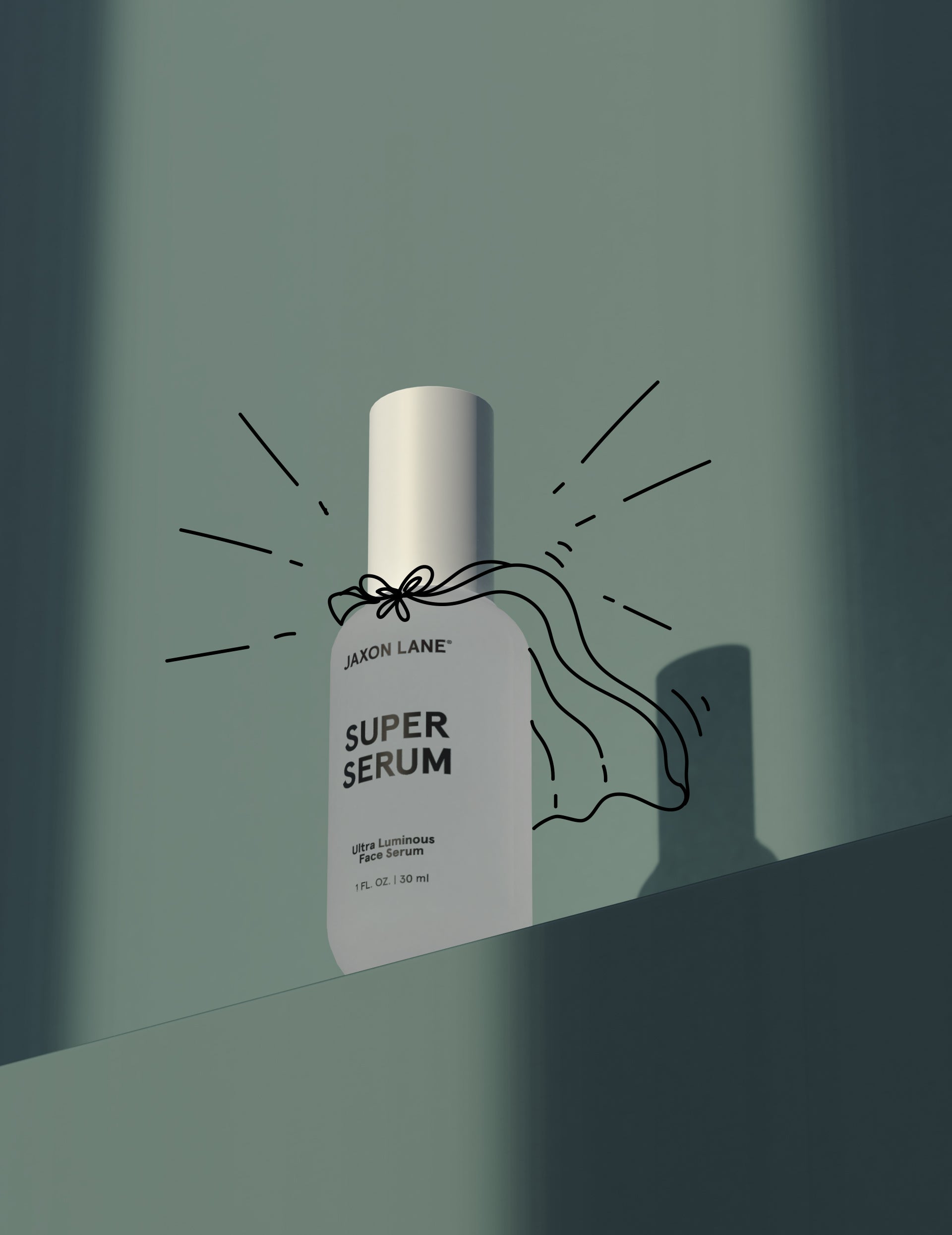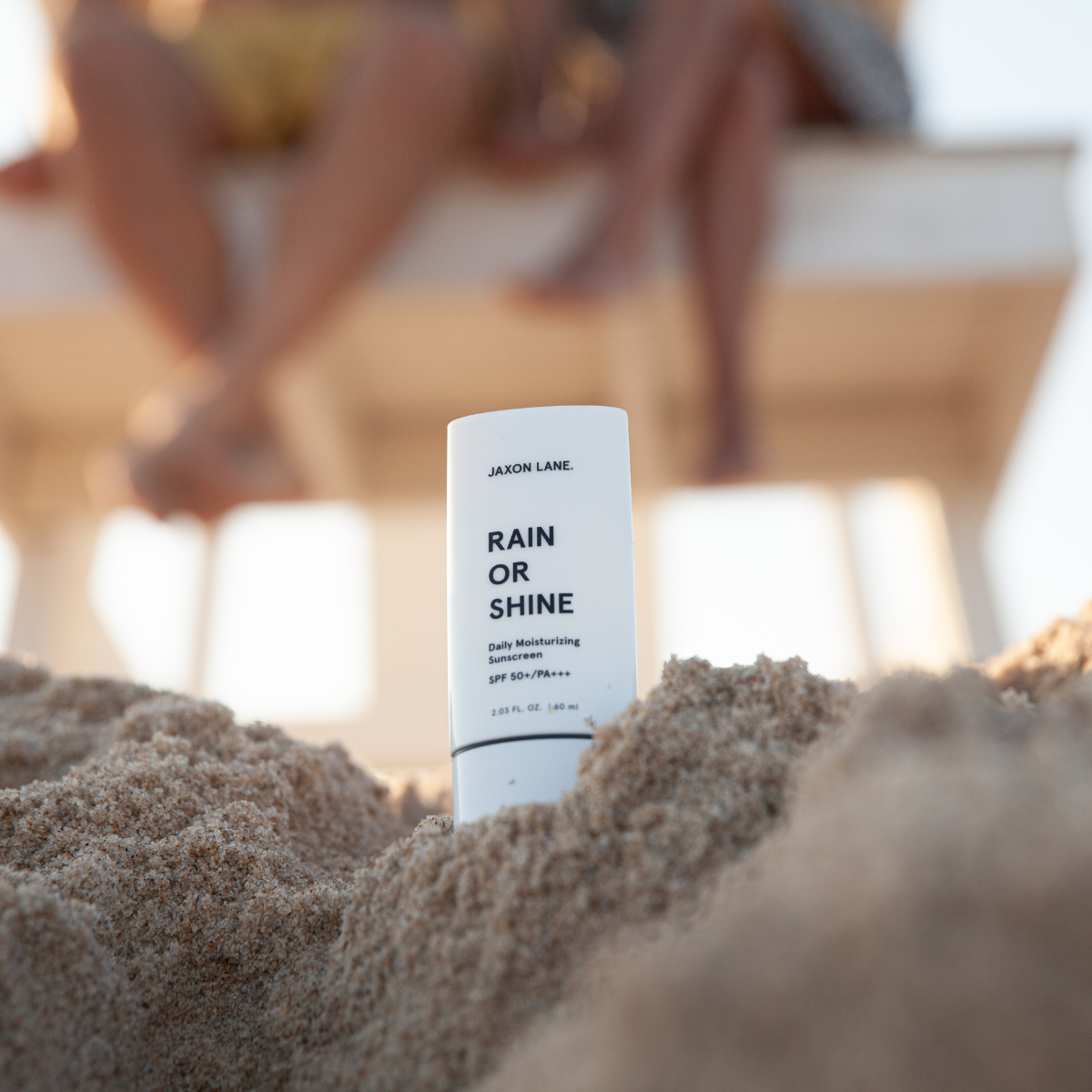
Your Ultimate Guide to Skincare Serums
It’s 2023, and men’s skincare is starting to catch up to the lineup and quality of women’s products. That’s a good thing! But, the long-overdue focus on skincare tailored to men’s skin and lifestyle has brought with it the curse of choice. With so many products out there and so many claims, how do you choose what’s best for you and your routine? We’re here to help, and today we’re focusing on the product of the moment: serums.
Skincare serums have become a staple in many men's grooming routines due to their ability to target specific skin concerns and deliver potent ingredients. However, there’s often confusion about when and how to incorporate a serum into a skincare regimen. Join us as we answer some of the most common questions regarding the usage of skincare serums, and help you understand when and how to incorporate this powerful product into your daily routine.
What’s a skincare serum? Why does it differ from other products?
A skincare serum is a lightweight, highly concentrated product that contains active ingredients designed to address specific skin concerns, such as fine lines, dark spots, or dehydration. Unlike moisturizers, which provide hydration and protection, serums have a smaller molecular size, allowing them to penetrate deeper into the skin, delivering targeted benefits.
When should I use a serum?
The best time to use a skincare serum largely depends on the specific product and its intended benefits. In general, serums can be used both in the morning and evening. However, if you have a specific serum that contains ingredients that may increase sensitivity to the sun, such as retinol or Vitamin C, it's best to use it in your evening routine. Always check the product label or consult with a skincare professional to determine the recommended usage.
When formulating our very own Jaxon Lane serum, we wanted to deliver the ultimate results for your skin while minimizing concerns like redness and sensitivity. To bring that goal to life, we pack our serum with hyper-effective ingredients like niacinamide, tranexamic acid and peptides. We also opted for bakuchiol, nature’s answer to retinol. Bakuchiol delivers the same anti-aging, skin smoothing results - without retinol’s side effects of sun sensitivity and redness.

Should I apply a serum before or after my moisturizer?
As a general rule of thumb, apply serums before moisturizers. Serums have smaller molecules, allowing them to penetrate the skin more effectively. Applying them first ensures that their active ingredients can fully absorb into the skin. Once the serum has been absorbed, follow up with a moisturizer to seal in hydration and provide a protective barrier.
Can I use multiple serums at a time?
Yes, it is possible to use multiple serums in your skincare routine, but it's important to use them strategically. Start by understanding your skin's specific needs and concerns, then choose serums that address those concerns. Layering multiple serums can be beneficial if they contain different active ingredients that complement each other. However, avoid using too many serums simultaneously, as this can overwhelm the skin and reduce the effectiveness of each product. A good practice is to alternate serums, using one in the morning and another in the evening or rotating them on different days.
What are the different types of serums, and which should I use?
There are several different types of serums available, each with its own unique benefits. Here are some common types of serums and when you should use them:
- Hydrating Serums: Hydrating serums are formulated to replenish and retain moisture in the skin. They often contain ingredients like hyaluronic acid, glycerin, or ceramides, which help to attract and lock in moisture. Use hydrating serums if you have dry or dehydrated skin, or whenever your skin needs an extra boost of hydration.
- Brightening Serums: Brightening serums target skin discoloration, dark spots, and uneven skin tone. They usually contain ingredients like vitamin C, niacinamide, or alpha-arbutin, which help to reduce hyperpigmentation and promote a more radiant complexion. Use brightening serums if you have dull or uneven skin tone, sunspots, or hyperpigmentation issues.
- Anti-Aging Serums: Anti-aging serums are designed to minimize the appearance of fine lines, wrinkles, and other signs of aging. They often contain ingredients like retinol, peptides, or antioxidants, which help to stimulate collagen production, improve skin texture, and reduce the signs of aging. Use anti-aging serums if you have mature skin or want to prevent and reduce the visible signs of aging.
- Acne-Fighting Serums: Acne-fighting serums are formulated to target and treat acne-prone skin. They often contain ingredients like salicylic acid, tea tree oil, or benzoyl peroxide, which help to unclog pores, reduce inflammation, and control excess oil production. Use acne-fighting serums if you have acne or occasional breakouts, but be cautious if you have sensitive or dry skin.
- Soothing and Calming Serums: Soothing serums are designed to calm and soothe sensitive or irritated skin. They often contain ingredients like aloe vera, chamomile, or green tea extract, which help to reduce redness, inflammation, and skin sensitivity. Use soothing serums if you have sensitive or reactive skin, or if your skin is irritated from environmental factors or other skincare products.
Pro tip: we were tired of using multiple different products to target different concerns - so when we made the Jaxon Lane Super Serum, we super-charged it with all our favorite ingredients to achieve ALL of our goals at once.
How much should I pay for a skincare serum?
The price of a skincare serum can vary widely depending on various factors such as the brand, quality of ingredients, packaging, and overall market positioning. Generally, skincare serums range in price from around $20 to $200 or more per bottle.
The price of a serum doesn't always directly correlate with its effectiveness or suitability for your skin. What matters most is finding a serum that addresses your specific concerns and works well with your skin type. Additionally, it's worth considering factors such as the reputation and track record of the brand, product reviews, and any unique features or benefits offered by the serum. When choosing your go-to serum, consider the ingredient list. Look for serums that contain multiple “hero” ingredients, like niacinamide, tranexamic acid, bakuchiol, centella, and hyaluronic acid, versus just one or two to get the biggest bang for your buck.
How long does it take to see results from a serum?
The timeframe to see visible results from a skincare serum varies depending on several factors, including the specific product, the targeted concern, and individual skin type. In general, it's recommended to use a serum consistently for at least four to six weeks to see noticeable improvements. However, some serums may provide immediate benefits, such as hydration or a temporary plumping effect.
When should I use a serum in my routine?
The order in which you apply serum within your skincare routine is important to maximize its benefits and ensure it works effectively with other products. Of course, your exact lineup will depend on the products in your regimen, but here’s a high-level recommendation of which products to use in which order, and why.
- Cleansing: Start by cleansing your face to remove any dirt, makeup, or impurities with a face wash like Boom Cica Wow or Shake and Wake
- Toning: Apply a toner to balance your skin's pH levels and prepare it for better absorption of the serum.
- Serum: After toning, apply the serum. Serums are formulated with high concentrations of active ingredients to target specific skin concerns like hydration, anti-aging, brightening, or acne. Gently pat or massage the serum onto your face and neck.
- Eye Cream: If you use an eye cream, apply it next. Use your ring finger to dab a small amount of eye cream around the orbital bone, avoiding direct contact with the eyes.
- Moisturizer: Follow up with a moisturizer like Relax & Repair to lock in the serum's benefits and provide additional hydration. Choose a moisturizer suitable for your skin type.
- SPF: Finish off with sunscreen like Rain or Shine to protect your skin from harmful UV rays.
It's important to allow each product to absorb fully into the skin before applying the next one. Waiting a minute or two between layers can be beneficial to ensure proper absorption and prevent pilling of products. Remember that everyone's skin is different, so consider your skin type and specific concerns when choosing the right serum and other skincare products for your routine. Additionally, if you have a prescribed skincare regimen from a dermatologist, follow their instructions on the order and frequency of applying products.
At what age should I start using a serum?
When it comes to preventative skincare, the sooner the better! But it's never too late to reap the benefits of a skincare serum. The ideal age to start using a serum can vary from person to person, as it depends on individual skin concerns and needs. Generally, most people can begin incorporating a serum into their skincare routine in their mid to late 20s. However, if you have specific skin concerns that can benefit from serums, you might consider using them earlier.
Serums are typically formulated with concentrated active ingredients that target specific skin issues, such as hydration, anti-aging, brightening, or acne. Here are some common skin concerns and when you might start considering using a serum:
- Hydration: Even in your early 20s, you can start using a hydrating serum if your skin feels dry or lacks moisture.
- Anti-aging: As collagen production begins to decline in the mid-20s, you might consider adding an anti-aging serum to your routine if you want to address fine lines and prevent premature aging.
- Brightening: If you notice early signs of sunspots, pigmentation, or dullness, a brightening serum might be beneficial, typically around the mid to late 20s.
- Acne and blemishes: If you struggle with acne-prone skin, you can start using a serum with ingredients like salicylic acid or niacinamide in your late teens or early 20s.
Remember, prevention is key in skincare, so incorporating serums with antioxidants and other skin-loving ingredients early on can help maintain a healthy complexion and delay the signs of aging.
Regardless of your age, always choose serums based on your skin type and specific concerns. If you are unsure about what serum to use or have any skin conditions, it's a good idea to consult with a dermatologist who can recommend the best products tailored to your needs.
Are there any downsides to using a serum?
The answer is generally no, but there are a few considerations to keep in mind when incorporating a serum into your routine.
- Exfoliation or high concentration: If you're using an exfoliating serum (especially one that contains retinol) or a very concentrated serum, your skin will be more sensitive because it’s turning over dead skin cells faster. That means you need to wear sunscreen during the day to protect your sensitive skin. Of course, you should be wearing a daily sunscreen anyway!
- Ingredient combinations: You should also keep an eye on how you’re mixing exfoliating serums with other ingredients throughout your skincare routine. Some ingredient combinations will make skin too sensitized. If you notice redness or irritation, stop using the serum.
- Overuse: Using multiple serums simultaneously or using them too frequently can overwhelm your skin and lead to issues like breakouts, redness, or irritation. It's crucial to follow the recommended usage instructions and not overdo it.
Drop by drop, serums make a difference!
Skincare serums are powerful tools that can enhance your grooming routine and address specific skin concerns effectively. By understanding when and how to incorporate a serum into your skincare regimen, you can maximize its benefits and achieve healthier, more radiant skin. Remember to choose serums that target your specific concerns, use them in the appropriate order, and be patient as you allow time for the active ingredients to work their magic. With a consistent and well-executed skincare routine, you'll be well on your way to achieving your desired skin goals.
Shop Jaxon Lane's award-winning serum and complementary products
Hint: all of our sets give you a discount on each product!






